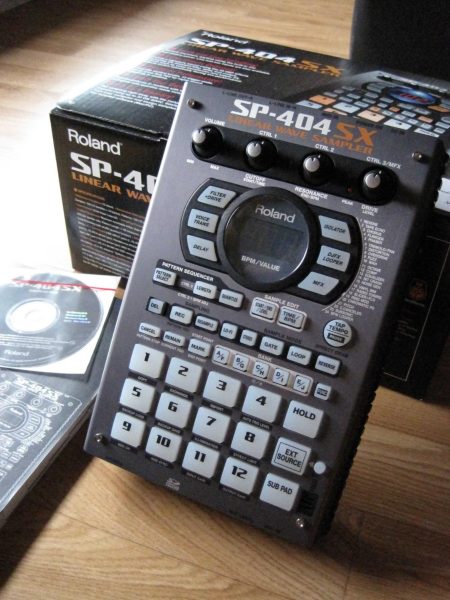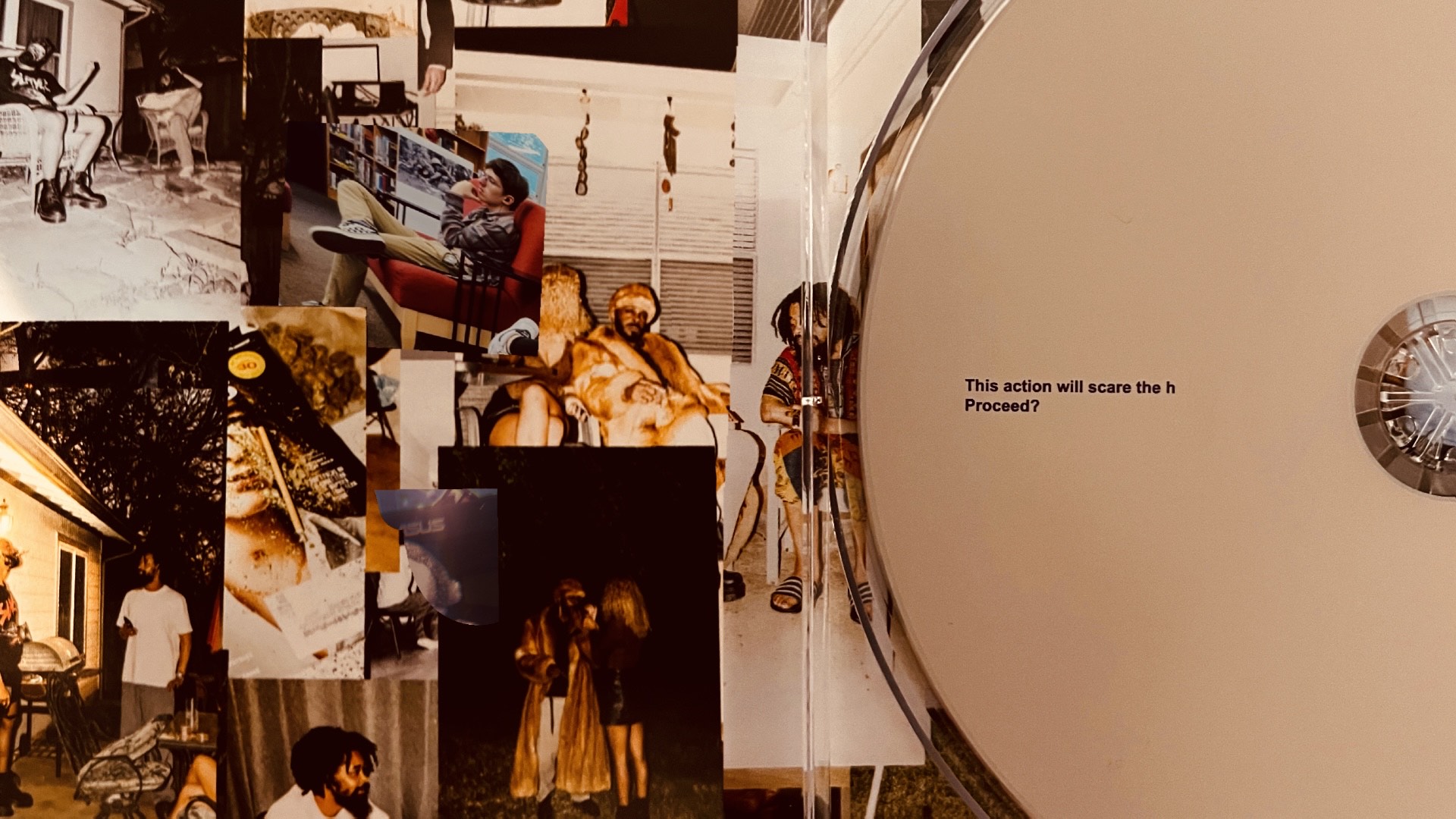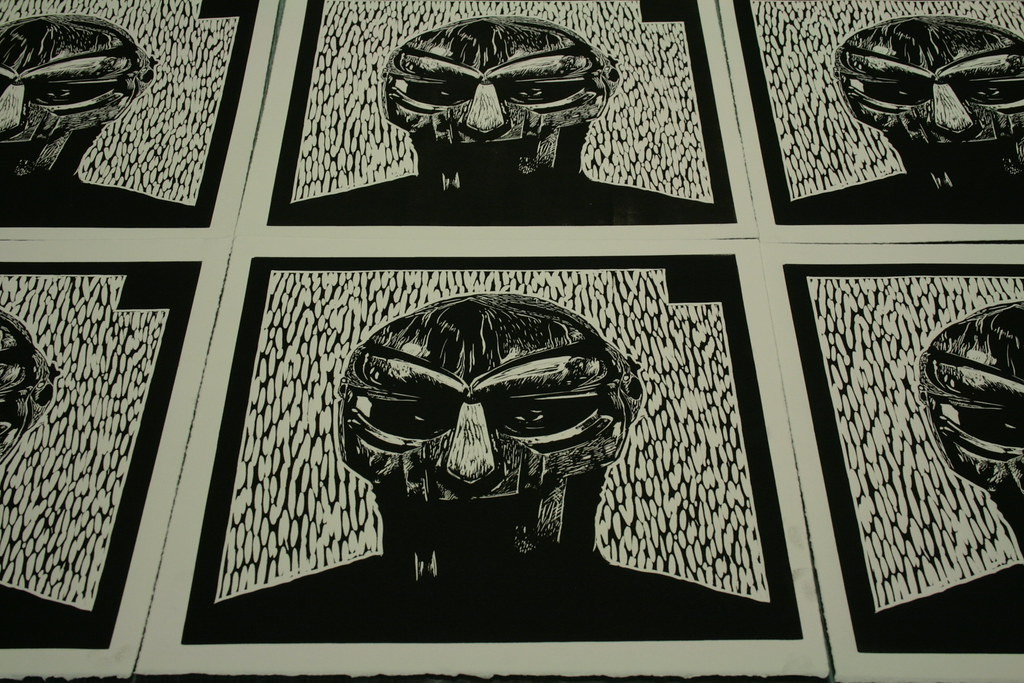Scaring the h***, pleasing the ho.
Blessings to the experimental rap fanbase were given when left-field rappers JPEGMAFIA and Danny Brown unveiled their long-awaited collab album “SCARING THE H***” on March 24, 2023.
JPEGMAFIA (also known as “Peggy”) had already made a name for himself as one of the most innovative experimental rappers and producers of the present day, while also gaining a one-of-a-kind reputation for strange, outlandish beats and even more shocking, left-wing controversial lyrics. But strange doesn’t necessarily mean bad, and in Peggy’s case, it’s the opposite. The unfiltered discography Peggy has built up with releases like “Veteran” and “All My Heroes Are Cornballs” has gained him a sizable, quickly growing fanbase who’s created a reputation for themselves as some of the weirdest, repugnant fans in all of rap.
Peggy’s expertise in self-awareness and comedic nature in himself, the history of his music, and the culture he’s surrounded around him have all led to his 2023 release, “SCARING THE H***”. The title alone signals that the next 38 minutes will be filled with the most unhinged, comedic uncaring set of songs of the decade. Left field, not widely appealing music and its listeners have an unpopular weird connotation, with many making fun of these music listeners. A popular callout to these listeners states that they can’t get themselves into intimate relationships. This type of behavior is seen especially in internet culture and usually is used to make fun of oneself and their own taste in strange music. Peggy comedically plays into this idea due to the nature of his music and fans in such a genius uncaring manner, being so self-aware of the negative stigma his music has and in tune with his audience and internet culture as a whole that it’s hard to think of anyone else that can pull off the concept of an album like this.
The concept of such a hectic album by one of the most hectic artists of today seems like we’ve hit the ceiling on the potential this album can deliver, but this album has one last impactful card under its sleeves to break through the ceiling and go far into the sky. Peggy isn’t alone in this album, as Danny Brown has also played tremendous impacts on each song.
Danny Brown has made a name for himself since the early 2010s with collaborations with A$AP Rocky, Kendrick Lamar, Gorillaz, etc. He even produced and rapped in the theme song for the show “Fresh Off The Boat.” Despite Danny’s decade-long career collaborating with many in the mainstream, his discography is filled with everything but the norm. Critically acclaimed albums from Danny like “XXX” and “Atrocity Exhibition” have shown his outlandish, weird samples and truly unique and even weirder voice. A cumulation of his decade-long history has led to many overlaps between his audience and Peggys. These overlaps slowly got the two artists closer and closer together, with Danny Brown going as far as to joke in an interview before the album’s release that when he first heard of Peggy’s music in the mid-2010s, he thought that Peggy was going to replace his place in rap in the future. Their chemistry seemed perfect for a collab album, and it wouldn’t be long until they found themselves collaborating on “SCARING THE H***.”
The first teaser track as well as the opening track on the album punches you in the face right away with the song “Lean Beef Patty.” The song includes outlandish callouts to Elon Musk, Kyle Rittenhouse, and Papa John just to name a few; but not without reason. Peggy demonstrates his talent in articulating his ideas and thoughts with humor and shock. Looking deeper into his lyrics, especially on “Lean Beef Patty,” he connects references to either himself or the culture around him to create an overall statement he wants to project onto the listener, as well as trying to make every connection and statement outlandish to come across as surprising and comedic. In this case, “Lean Beef Patty” shows the frustration Peggy has with online users on social media like “Twitter” (now known as “X”), and specifically how his statements can spiral into controversy or be neglected because of their outlandishness. He does this over a beat that could overstimulate anyone unfamiliar with experimental rap with its chipmunk-like sample before exploding the sample into a massive bass in the beat drop and unhinged sinister synths, traits that are apparent throughout the album.
Lyrical highlights are most apparent for me in the first half of the album, especially with “Steppa Pig” near the end where the instrumentals take a backseat and Peggy starts spilling his thoughts over parasocial relationships online as well as critiquing his haters with one of the more serious deliveries compared to the rest of the album, and while the instrumentals are a little weaker compared to the rest of the album, “Steppa Pig” has a lot going for it lyrically, and opens up many conversations about internet culture.
Moving from song to song on this album provides a massive variety of samples, whether it’s the sample from the 2008 hit “Milkshake” by Kelis on “Fentanyl Tester” or the obscure “You Don’t Know” creating the central instrumentals of “God Loves You,” or the random Japanese advertisement jingle for noodles in the 80s on “Garbage Pale Kids,” the album is truly unpredictable in its production, but the unhinged synths, bass and beat drops mentioned earlier create certain loud, bass centered, berserk-like production that are recognizable sounds that ties many of the samples and songs as a whole together.
The title track goes completely off the rails in its instrumentation and samples. It’s a song that’s been growing on me more and more day by day. The out-of-tune squeaky saxophone and fat wet clapping sounds throughout the song sound disturbing but work perfectly with Danny’s voice and give in to the lyrical aspects Danny raps about. Bars about not making a living with such a strange beat and being forced to give the aux cord away because nobody likes the music you put on create a paradoxical relationship between the beat and lyrics, where Danny makes fun of the type of music he’s rapping on top of. The more I listen to the song the more the samples work together, and the catchiness and genius of the song unravel itself.
The beats and instrumentals on every song give Peggy many opportunities to flex his creative talent in production, and he took as many of these opportunities as he could to create some of the best productions to date, even with the restrictions of the Roland SP-404SX portable sampler made in 2005 he purposely used to create every instrumental on the album, mimicking the sounds of the 90s.

One of the best beats on the album lands on “Garbage Pale Kids,” which has been on repeat ever since the album’s release. It’s still hard for me to believe Peggy somehow heard a random Japanese advertisement from the 1980s, thought it would sound great for a song, and turned it into one of the best instrumentals he’s made. The Japanese refrain, while I don’t understand them is infectious, and Danny’s clunky flow bounces off the clunky instrumentals so satisfyingly it’s hard for this song to get old.
Another popular song on the album, “Burfict,” has grown to be a fan favorite, and for good reason. The extravagant brass instruments mixed with the fat bass throughout the song make this one of the most energetic beats on the album.
While the album staggers a bit after the halfway point of the album, there’s no filler throughout the album, and it feels cohesive all the way through, staying true to its themes and goals, even if some tracks may not be mixed or layered as well as others.
“Kingdom Hearts Key” is the most memorable highlight for me. The duo and only feature throughout the album “redveil” all deliver powerful energy and flow throughout the entire song. This delivery along with the fantastically uplifting and blissful Maaya Sakamoto sample creates such a heavenly atmosphere, making this one of the best moments on the project.
Right after “Kingdom Hearts Key” is another extravagant favorite, “God Loves You.” The beat on this song is berserk, and the bass and percussion are let loose on this song, filling any space on this song. The African American gospel sample from the late 80s is completely transformed by the production and becomes as frantic as the percussion, while also still retaining the heavenly effect the original sample gave.
The final stretch of the album never dips in quality and keeps pumping out fantastic tracks, many of which are some of the most underrated tracks of the album. The jazz-rap detour we get on “Jack Harlow Combo Meal” and the funky beats of “Heaven on Earth” make the last set of songs feel captivating, and keep the same level of entrancement I’ve had since the beginning. There aren’t any slow or boring parts of the album, it’s fast-paced throughout until the abrupt ending “Where Ya Get Ya Coke From?” which leaves us with the same amount of energy and spontaneity as the first seconds of the album. The end of the last track leaves me wanting more of the creative sounds of the album (which Peggy and Danny later deliver with their EP “SCARING THE H***: DLC PACK” four months after the original release), but despite the abrupt ending, the album feels complete, and such an ending is entirely in character for an unpredictable and uncaring album like this.
“SCARING THE H***” tells us the cold-hearted truth— some music can never succeed in the mainstream. We live in a world where the song or album that appeals to the widest audience is going to win, no matter the critical acclaim it gets, or the creativity and cohesiveness that gets put into the album. All music is opinionated, and it’s okay to not enjoy albums like “SCARING THE H***,” but recognizing the artistry, talent, and creativity that gets put into an album like “STH” is what lays the foundations for not just music, but art as a whole, and fully dissecting art pieces like this will guarantee more enjoyment and fulfillment in listening to music. Immediately writing off “SCARING THE H***” as too weird and awkward without diving deep into the album leads to shallow tastes in music, and constricts a person’s playlist to just easily digestible hits. Anyone could find something genius or enjoyable about “STH” if they dissected every piece of it because so many albums like “STH” have so much more to them than the weird instrumentals that instantly drive people away. Being able to recognize these things will give justice to albums like “STH,” and digging deeper into albums that have so much creativity and talent behind them versus albums that exploit cheap washed-out sounds is the first step of getting humanity further away from its surface level listening habits, and leave listeners a little less scared of JPEGMAFIA and Danny Brown.





